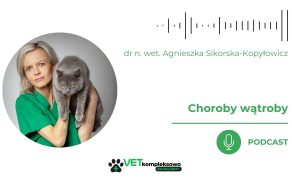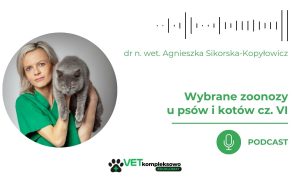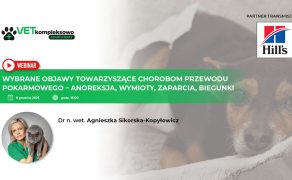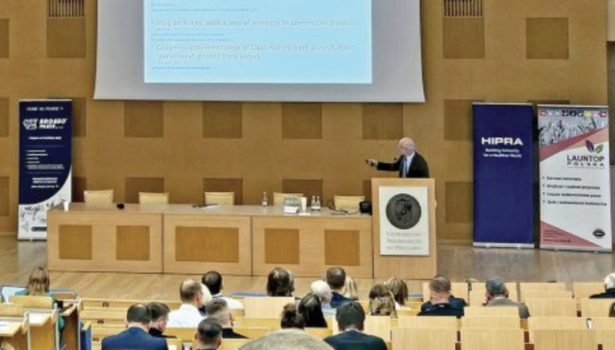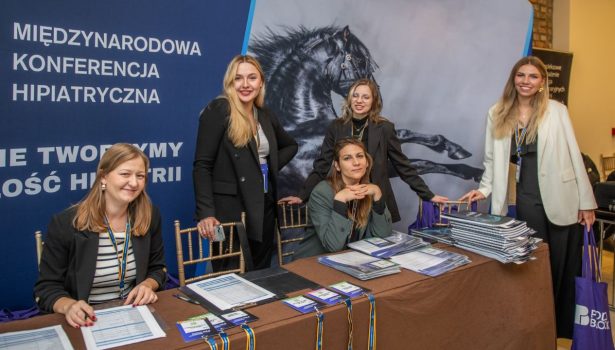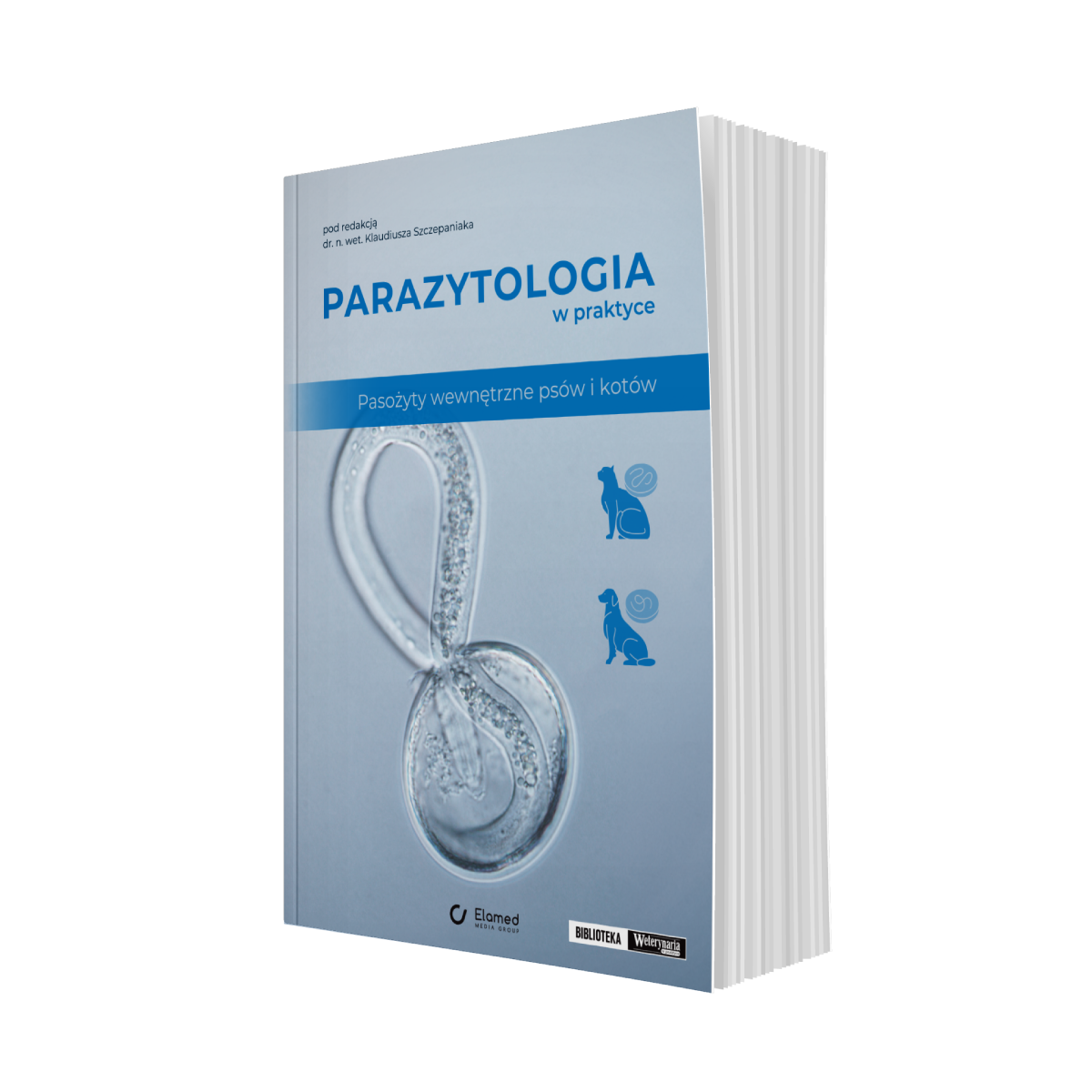Rola postępowania dietetycznego w żywieniu przewlekle chorych psów i kotów
Piśmiennictwo
- Avenell A.: Glutamine in critical care: Current evidence from systematic reviews. „Proc Nutr Soc”, 2006, 65, 236-241.
- Brunetto M.A., Gomes M.O.S., Andre M.R. et al.: Effects of nutritional support on hospitalized outcomes in dogs and cats. „J Vet Emerg Crit Care”, 2010, 20 (2), 224-31.
- Buter H., Bakker A.J., Kingma W.P., Koopmans M., Boerma E.C.: Plasma glutamine levels in patients after non-elective or elective ICU admission: An observational study. „BMC Anesthesiol”, 2016, 16, 1-5.
- Chan D.L.: Nutritional requirements of the critically ill patient. „Clin Tech Small Anim Pract”, 2004, 19 (1), 1-5.
- Delage B., Fennell D.A., Nicholson L. et al.: Arginine deprivation and argininosuccinate synthetase expression in the treatment of cancer. „Int J Cancer”, 2010, 126, 2762-2772.
- Dillon B.J., Prieto V.G., Curley S.A. et al.: Incidence and distribution of argininosuccinate synthetase deficiency in human cancers: a method for identifying cancers sensitive to arginine deprivation. „Cancer”, 2004, 100, 826-833.
- Freitag K.A., Saker K.E., Thomas E. et al.: Acute starvation and subsequent refeeding affect lymphocyte subsets and proliferation in cats. „J Nutr”, 2000, 130 (10), 2444-9.
- Fultang L., Vardon A., De Santo C. et al.: Molecular basis and current strategies of therapeutic arginine depletion for cancer. „Int J Cancer”, 2016, 139, 501-509.
- Gudivada K.K., Kumar A., Shariff M., Sampath S., Varma M.M., Sivakoti S., Krishna B.: Antioxidant micronutrient supplementation in critically ill adults: A systematic review with meta-analysis and trial sequential analysis. „Clin Nutr”, 2021, 40, 740-750.
- Harris J.P., Parnell N.K., Griffith E.H. et al.: Retrospective evaluation of the impact of early enteral nutrition on clinical outcomes in dogs with pancreatitis: 34 cases (2010-13). „J Vet Emerg Crit Care”, 2017, 27 (4), 425-33.
- Harvey S.E., Parrott F., Harrison D.A., Bear D.E., Segaran E., Beale R., Bellingan G., Leonard R., Mythen M.G., Rowan K.M. et al.: Trial of the route of early nutritional support in critically ill adults. „N Engl J Med”, 2014, 371, 1673-1684.
- Heyland D., Wischmeyer P.E., Day A.G.: Canadian Clinical Care Trials, G. Glutamine and antioxidants in critically ill patients. „N Engl J Med”, 2013, 369, 484-485.
- Hill A., Heyland D.K., Ortiz Reyes L.A., Laaf E., Wendt S., Elke G., Stoppe C.: A combination of enteral and parenteral nutrition in the acute phase of critical illness: An updated systematic review and meta-analysis. „J Parenter Enter Nutr”, 2021, 1-16.
- Hoffberg J.E., Koenigshof A.: Evaluation of the safety of early compared to lateenteral nutrition in canine septic peritonitis. „J Am Anim Hosp Assoc”, 2017, 53 (2), 90-5.
- Jelinska M., Tokarz A.: Nowe oblicza starych znajomych – przeciwzapalne metabolity n-3 WNKT. Część I – pochodne EPA. Bromatologia i Chemia Toksykologiczna. 2011, 44, 313-318.
- Langlois P.L., Szwec C., D’Aragon F., Heyland D.K., Manzanares W.: Vitamin D supplementation in the critically ill: A systematic review and meta-analysis. „Clin Nutr”, 2018, 37, 1238-1246.
- Liu D.T., Brown D.C., Silverstein D.C.: Early nutritional support is associated with decreased length of hospitalization in dogs with septic peritonitis: A retrospective study of 45 cases (2000-2009). „J Vet Emerg Crit Care”, 2012, 22 (4), 453-9.
- Mansfield C.S., James F.E., Steiner J.M. et al.: A pilot study to assess tolerability of early enteral nutrition via esophagostomy tube feeding in dogs with severe acute pancreatitis. „J Vet Intern Med”, 2011, 25 (3), 419-25.
- McClave S.A., Taylor B.E., Martindale R.G., Warren M.M., Johnson D.R., Braunschweig C., McCarthy M.S., Davanos E., Rice T.W., Cresci G.A. et al.: Guidelines for the Provision and Assessment of Nutrition Support Therapy in the Adult Critically Ill Patient: Society of Critical Care Medicine (SCCM) and American Society for Parenteral and Enteral Nutrition (A.S.P.E.N.). „J Parenter Enter Nutr”, 2016, 40, 159-211.
- Mehta N.M., Skillman H.E., Irving S.Y. et al.: Guidelines for the provision and assessment of nutritional support therapy in the pediatric critically ill patient: Society of Critical Care Medicine and American Society for parenteral and enteral nutrition. „JPEN J Parenter Enteral Nutr”, 2017, 41 (5), 706-42.
- Michel K.E., King L.G., Ostro E.: Measurement of urinary urea nitrogen content as an estimate of the amount of total urinary nitrogen loss in dogs in intensive care units. „J Am Vet Med Assoc”, 1997, 210 (3), 356-9.
- Mitchel K.E.: Nitrogen metabolism in critical care patients. „Vet Clin Nutr”, 1998, 20-2.
- Peńarando J., López-Sánchez L.M., Mena R. et al.: A role for endothelial nitric oxide synthase in intestinal stem cell proliferation and mesenchymal colorectal cancer. „BMC Biology”, 2018, 16.
- Pradelli L., Klek S., Mayer K., Omar Alsaleh A.J., Rosenthal M.D., Heller A.R., Muscaritoli M.: Omega-3 fatty acid-containing parenteral nutrition in ICU patients: Systematic review with meta-analysis and cost-effectiveness analysis. „Crit Care”, 2020, 24, 634.
- Reignier J., Boisrame-Helms J., Brisard L., Lascarrou J.-B., Ait Hssain A., Anguel N., Argaud L., Asehnoune K., Asfar P., Bellec F. et al.: Enteral versus parenteral early nutrition in ventilated adults with shock: A randomised, controlled, multicentre, open-label, parallel-group study (NUTRIREA-2). „Lancet”, 2018, 391, 133-143.
- Tume L.N., Valla F.V., Joosten K. et al.: Nutritional support for children during critical illness; European Society of Pediatric and Neonatal Intensive Care (ESPNIC) metabolism, endocrine and nutrition section position statement and clinical recommendations. „Intensive Care Med”, 2020, 46 (3), 411-25.
dr inż. Jacek Wilczak
Zakład Biochemii i Dietetyki
Katedra Nauk Fizjologicznych
Instytut Medycyny Weterynaryjnej
Szkoła Główna Gospodarstwa Wiejskiego w Warszawie
ul. Nowoursynowska 159
02-776 Warszawa
jacek_wilczak@sggw.edu.pl
120
ALGORYTMY
POSTĘPOWANIA
w weterynarii
POSTĘPOWANIA
w weterynarii






